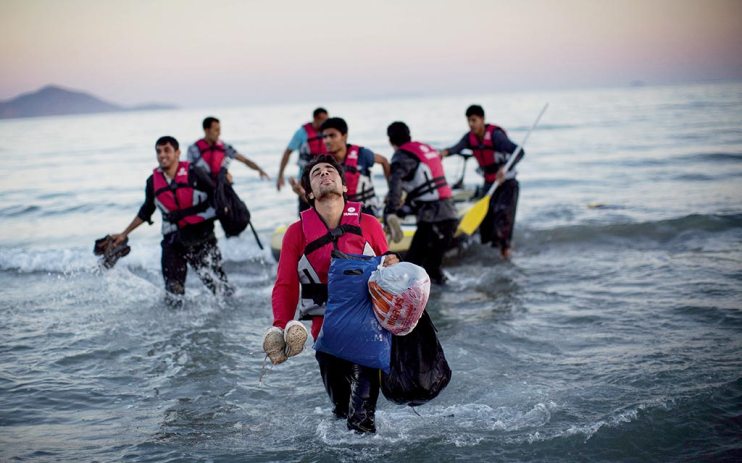UN refugee agency raises ‘deep concern’ over UK asylum system overhaul

The UN’s refugee agency today voiced “deep concern” around new UK asylum changes, labelling the reforms as an “almost neo-colonial approach”.
Gillian Triggs, assistant high commissioner for protection at the United Nations High Commissioner for Refugees (UNHCR) told a Chatham House briefing the changes “shift burden” rather than “share responsibilities” on supporting refugees.
Sweeping reforms of the UK asylum system were introduced to Parliament earlier this week under the Government’s Nationality and Borders Bill.
Planned changes
The bill would grant home secretary Priti Patel, and all future post holders, the ability to suspend or delay the processing of visa applications from countries that the government deem to be “uncooperative” in taking back asylum seekers.
Dubbed the “anti-refugee bill” by critics, the proposed laws could see Border Force officers given powers to turn back migrants at sea.
The new legislation also includes differentiating between those who arrived in the UK legally and illegally. The latter could only be granted temporary refugee status, even if their claim is successful, and have their access to benefits and family reunion rights restricted.
Critics have said this risks violates International law, as the UN’s Refugee Convention prohibits penalties on refugees’ manner of entry.
The bill would also make it a criminal offence to knowingly arrive in the UK without permission, with the maximum sentence for those entering the country unlawfully rising from six months’ imprisonment to four years.
Asylum seekers may also be removed from the UK before a decision is reached on their claim or appeal. This would allow the Home Office to house asylum seekers abroad.
“Disastrous consequences” ahead
Ms Triggs levelled criticism at countries turning to such “externalisation” and considering ideas like Australia’s approach of using processing centres in Nauru and Papua New Guinea.
She said the UNHCR is “absolutely dismayed that some of our strongest supporters historically are now playing with this idea of externalising their responsibilities”, adding: “What we are finding is that western, developed and wealthy countries are now not sharing responsibilities but shifting burdens to these poor countries.”
Describing Australian policies as having “disastrous consequences”, she said: “To see Denmark and now the United Kingdom looking at the same ideas is a matter of deep concern to UNHCR because we see it as almost a neo-colonial approach.
“You pass it off to…African countries and you wash your hands with it. You might pay a lot of money… but nonetheless to shift the burden in that way without the safeguards is a problem.”
Neo-colonialism is characterised as the use of economic, political, cultural, or other pressures to control or influence other countries.
States could instead still agree between themselves to share the responsibilities with safeguards in place, she said, adding: “There’s no doubt at all that the Denmark example, and now we see the United Kingdom introducing legislation to the same effect, we are deeply, deeply concerned for the future of the asylum system. Because if we push back at the borders and we do not allow a claim to be made at the border, you pretty much undermine the entire asylum system.”
When pressed on the impact of “externalisation”, she replied: “We believe it is a profound threat to the system.”
However, she said the UK and Denmark’s attempts are not expected to be successful because they are “having a great deal of difficulty finding partners”.
Home Office response
The Home Office has refused to comment on the progress of any negotiations but talks with some countries are said to be ongoing.
So far no deals have been struck with any EU states, it is understood.
“We have to warn against it but at the same time we have to be realistic, that countries that are being approached to be part of these schemes are saying ‘under no circumstances’,” Ms Triggs added.
The Home Office insists the changes will “prioritise those most in need of protection while stopping the abuse of the system”.
A Home Office spokeswoman said: “We have been looking at what other countries do to deter illegal migration and this work continues. We will not rule out any option that could help reduce the illegal migration and relieve the pressure on the broken asylum system.”